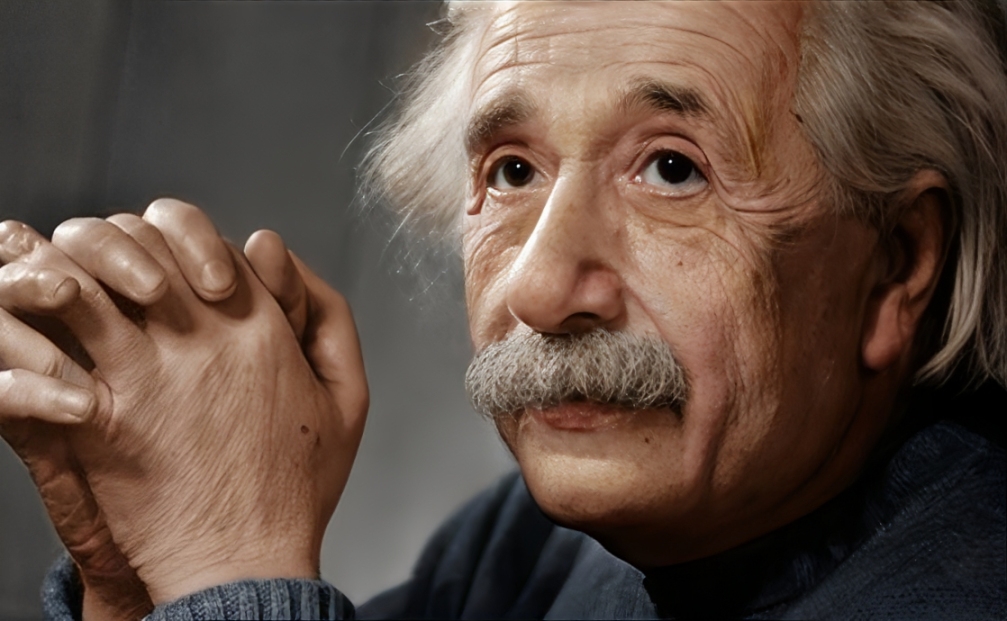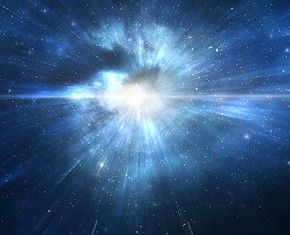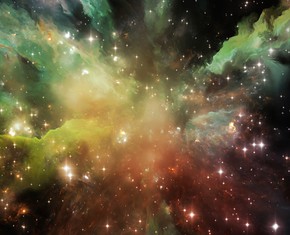The views expressed in our content reflect individual perspectives and do not represent the authoritative views of the Baha'i Faith.
For those who have embraced a very abstract understanding of God, some might call that idea the God of Einstein.
Einstein referred to himself as a “pantheistic” believer in the “God of Spinoza”—an abstract, impersonal Supreme Being. He also felt the problem of God to be “the most difficult in the world” and considered it “too vast for our limited minds.” He said:
I believe in Spinoza’s God, Who reveals Himself in the lawful harmony of the world, not in a God Who concerns Himself with the fate and the doings of mankind. – Albert Einstein, interview with George Sylvester Viereck, Glimpses of the Great, p. 375.
While I might quibble with the details of Einstein’s pantheism, I still feel very akin to this approach philosophically, as do many modern scientists. In fact, Einstein’s God might apply to what I term “God in its essence.”
RELATED: Einstein’s Toaster: How to Better Understand and Use Baha’i Prayers
As a Baha’i, I would deny any direct personal knowledge of God. However, I do believe there exists a real Creator manifest in the universe, abstracted below this “God in its essence,” which is conscious, personal and has been expressed via messengers throughout human history—the same theistic God the prophets and founders of the major religions described. The Baha’i teachings refer to that Creator as an incomprehensible, unknowable “Essence:”
Know that the reality of the Divinity and the nature of the divine Essence is ineffable sanctity and absolute holiness; that is, it is exalted above and sanctified beyond every praise. All the attributes ascribed to the highest degrees of existence are, with regard to this station, mere imagination. The Invisible and Inaccessible can never be known; the absolute Essence can never be described. For the divine Essence is an all-encompassing reality, and all created things are encompassed. The all-encompassing must assuredly be greater than that which is encompassed, and thus the latter can in no wise discover the former or comprehend its reality. No matter how far human minds may advance, even attaining the highest degree of human comprehension, the uttermost limit of this comprehension is to behold the signs and attributes of God in the world of creation and not in the realm of divinity. – Abdu’l-Baha, Some Answered Questions, newly revised edition, p. 165.
Compare this view, originally expressed by Abdu’l-Baha in 1904, with Einstein’s, from an interview he gave in 1930:
The human mind, no matter how highly trained, cannot grasp the universe. We are in the position of a little child, entering a huge library whose walls are covered to the ceiling with books in many different tongues. The child knows that someone must have written those books. It does not know who or how. It does not understand the languages in which they are written. The child notes a definite plan in the arrangement of the books, a mysterious order, which it does not comprehend, but only dimly suspects. That, it seems to me, is the attitude of the human mind, even the greatest and most cultured, toward God. We see a universe marvelously arranged, obeying certain laws, but we understand the laws only dimly. Our limited minds cannot grasp the mysterious force that sways the constellations. – Albert Einstein, interview with George Sylvester Viereck, Glimpses of the Great, pp. 372-373.
Despite these sophisticated views of a Prime Mover in the universe, religion, in particular much of traditional theism, appears to be in full retreat in the broader culture. Fewer and fewer people, especially the young, want anything to do with traditional religious faith. In my experience, the attacks on theism appear to be growing in the nature of their viciousness, ridicule and derision, spreading beyond the traditional intellectual class and moving through all classes of society. As this sort of disbelief spreads, the antagonism directed at religion seems to grow, fueled by a sense of betrayal and the anger of feeling duped.
Many observers attribute this trend to the wholesale murder, tyranny, corruption and celebration of ignorance perpetrated in the name of religion, both in the past and in the present. At times, however, the rejection of theism has become so dogmatic and unthinking that it mirrors the mindset of the ultra-religious literalist—with any hint of theism cast as some sort of anti-science, tyrannical delusion and rejected without any consideration. On the other side those who still hold to literalist traditional beliefs, while dwindling, have now become more trenchant in their rejection of science and intellectualism.
RELATED: Finding Faith in Science: How We Form Our Deepest Beliefs
To be sure, many theists do accept rationality and the authority of modern science, yet their voices seem dimmer and arguments for belief more vague, and at times the science seems to strain against their stance.
In support of this position—a firm faith in a Creator congruent and co-existent with a rational acceptance of the truths exemplified by science—I want to lay out my logical reasons for belief in the second essay of this three-part series.
I should say first, though, that I have other, more important reasons based on my personal experience with the writings of Baha’u’llah, prayer and meditation, but those may not be easily understood by others—so in the next essay I’ll stick to the reason, logic and science, just as Einstein did.
















Comments
Sign in or create an account
Continue with Googleor